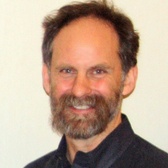

9, 10, 11, 12
Mr. Strasburger has joined NITARP as part of the 2014 class. He is also a mentor educator in the NITARP 2019 and 2020/2021 classes.
Many NITARP alumni helped us out with reviewing the NITARP 2016 proposals! Scientists who helped include Chris Gelino, Patrick Lowrance, Rafael Millan-Gabet, Charles Steinhardt, and Sean Carey. Thanks to all!
Mr. Strasburger's team got a nice writeup on their school's website.
The 2014 class has been announced! This year, we had many fewer spots to offer, and still 4.5 times as many educators applied as we had spots. Caroline Odden and John Gibbs will be our mentor educators for this class. Look for results of their projects in January 2015!
What makes NITARP extraordinary is the level of commitment: both the program's commitment to teachers, and the commitment required from teachers. Teachers commit to a year of hard work, study, risk taking, and intellectual growth. In return, NITARP commits to teachers the most precious resource possible: attentive and supportive mentorship from astronomers at one of the world's premiere research institutions. For me and my students the results have been transformative.
NITARP is without a doubt one of the two most valuable pieces of professional development work I have done in 25 years of teaching, and by far the most rewarding content-related work. I think that what you are doing is really unusual and valuable.
I have to tell you what an amazing experience this year has been. The BEST subject-area professional development experience I've had in 25 years BY FAR.
I have to tell you what an amazing experience this year has been. The BEST subject-area professional development experience I've had in 25 years BY FAR, and one of the most intellectually stimulating experiences I've had in years. I lie awake at night thinking about data. The students I'm bringing to Seattle are just eating this up -- it has been huge for them too.
Being at AAS was overwhelming, but enormously informative. [..] the best thing about the event was simply seeing how business is done. Some questioners at talks are part of informed discourse, some are competitive, some are off the wall, and some have an axe to grind. But mostly what came through powerfully -- and really changed my image of the field -- is how intensely collaborative the work is for the most part. I had never been to a poster session at an academic conference before. When I’ve seen high school poster sessions they seemed contrived to me. Now I understand what they are trying to model.